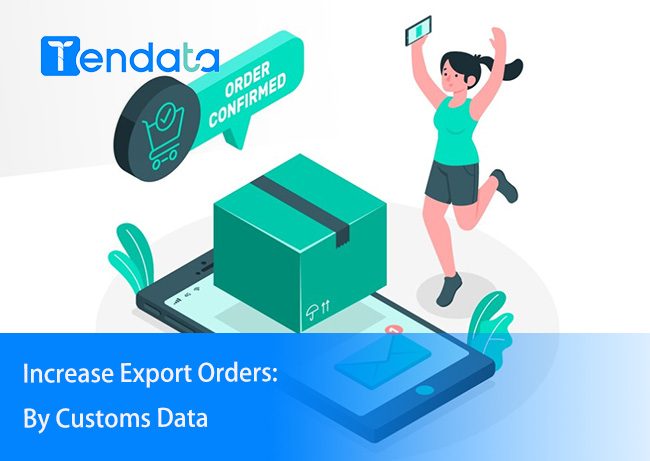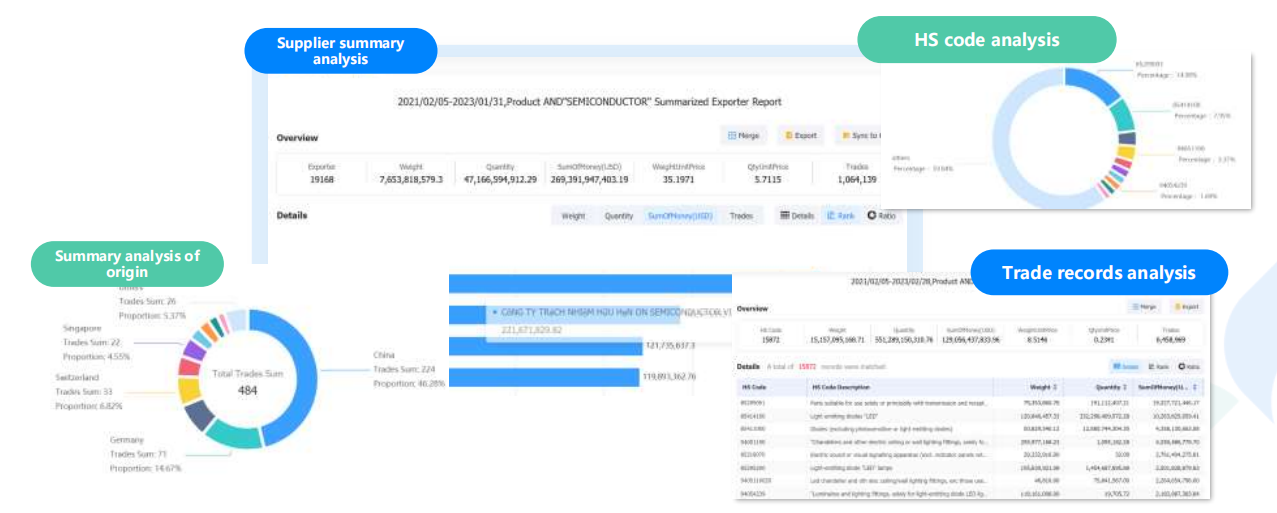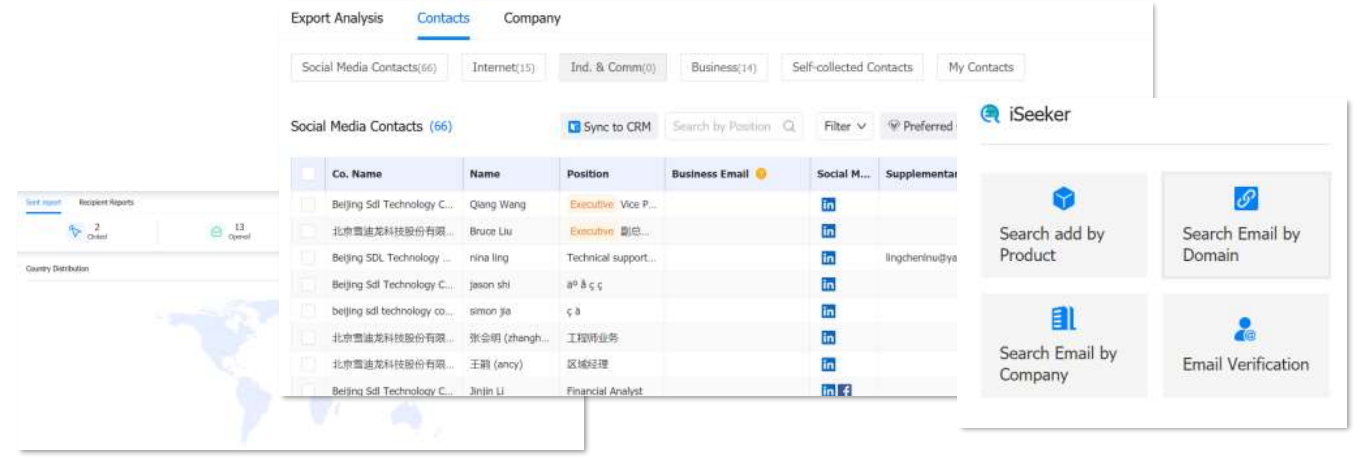 Export News
Export News
 06-06-2024
06-06-2024
In the highly competitive world of international trade, increasing export orders is a crucial goal for businesses looking to expand their market reach and boost their revenue. One powerful tool that can help achieve this goal is customs data. By effectively utilizing customs data, exporters can gain valuable insights into market trends, identify potential customers, and optimize their sales strategies. Here’s how you can leverage customs data to increase export orders.

Understanding Customs Data
Customs data is collected from the shipping documents (such as bills of lading) and declarations filed with customs authorities during import and export transactions. This data includes detailed information about the products being shipped, the countries of origin and destination, the parties involved in the transaction, and other relevant details like shipment volumes and values.
Benefits of Using Customs Data
1. Market Analysis and Trend Identification
Customs data provides comprehensive insights into market trends and demand patterns. By analyzing this data, exporters can identify which products are in high demand in different regions and adjust their offerings accordingly. For instance, if the data shows an increasing demand for a particular product in a specific country, an exporter can focus their marketing efforts on that region to capitalize on the trend and increase export orders.

2. Competitor Analysis
Understanding the competitive landscape is crucial for any business. Customs data allows exporters to see which companies are exporting similar products, where they are shipping to, and at what volumes and values. This information can help businesses benchmark their performance against competitors, identify gaps in the market, and develop strategies to differentiate their products and services, ultimately boosting their export orders.
3. Customer Identification and Targeting
One of the most significant advantages of customs data is the ability to identify potential customers. The data includes details of importers and exporters, enabling businesses to pinpoint potential buyers for their products. By reaching out to these companies, exporters can directly target businesses that have already shown an interest in similar products, increasing the likelihood of securing export orders.
4. Optimizing Sales Strategies
Customs data can reveal patterns in shipment sizes, frequencies, and seasonal trends. Exporters can use this information to optimize their sales strategies, such as timing their marketing campaigns to coincide with peak buying periods or adjusting their production schedules to meet demand more efficiently. These adjustments can lead to an increase in export orders.
5. Risk Management
Understanding the regulatory environment and compliance requirements in different markets is crucial for exporters. Customs data can help businesses stay informed about regulatory changes, tariffs, and trade agreements that may impact their exports. This knowledge allows exporters to navigate complex trade landscapes more effectively and reduce the risk of shipment delays or penalties, ensuring a smoother process for fulfilling export orders.
Practical Steps to Leverage Customs Data
1. Accessing Customs Data
To access customs data, exporters can use various online platforms and databases that provide comprehensive trade data. Some popular sources include government trade databases, private data providers, and specialized trade analysis tools. For example, Tendata is a platform that offers detailed customs data, allowing businesses to analyze global trade flows and identify potential markets and customers, thereby increasing their export orders.

2. Data Analysis and Interpretation
Once you have access to customs data, the next step is to analyze and interpret the information. Use data analysis tools to sort and filter the data based on your specific needs. Look for patterns and trends that can inform your market strategies. For instance, if you notice a steady increase in imports of a particular product in a specific region, it may indicate a growing market that you can tap into, thus boosting your export orders.
3. Developing Targeted Marketing Campaigns
Based on your analysis, develop targeted marketing campaigns to reach potential customers identified through the customs data. Tailor your messaging to address the specific needs and preferences of these customers. Highlight how your products can meet their demands and provide value-added services that set you apart from competitors. Effective marketing can significantly increase your export orders.
4. Building Relationships with Potential Customers
Reach out to the potential customers identified in the customs data. Establishing direct communication can help build trust and rapport with these businesses. Offer personalized solutions and be responsive to their inquiries. Building strong relationships with potential customers can lead to long-term partnerships and increased export orders.
>>>Increase Company Revenue with Tendata<<<

Conclusion
In the dynamic and competitive world of international trade, leveraging customs data is a powerful strategy for increasing export orders. By gaining insights into market trends, understanding the competitive landscape, identifying potential customers, and optimizing sales strategies, exporters can enhance their market reach and achieve sustainable growth. Accessing and effectively analyzing customs data, using platforms like Tendata, can provide the critical edge needed to thrive in the global market. By focusing on these strategies, businesses can see a substantial increase in their export orders and secure a stronger position in international trade.
Category
Leave Message for Demo Request or Questions


 T-info
T-info T-discovery
T-discovery

 My
Tendata
My
Tendata Market Analysis
Market Analysis Customer
Development
Customer
Development Competitor
Monitoring
Competitor
Monitoring Customer Relationship
Customer Relationship





































































































































